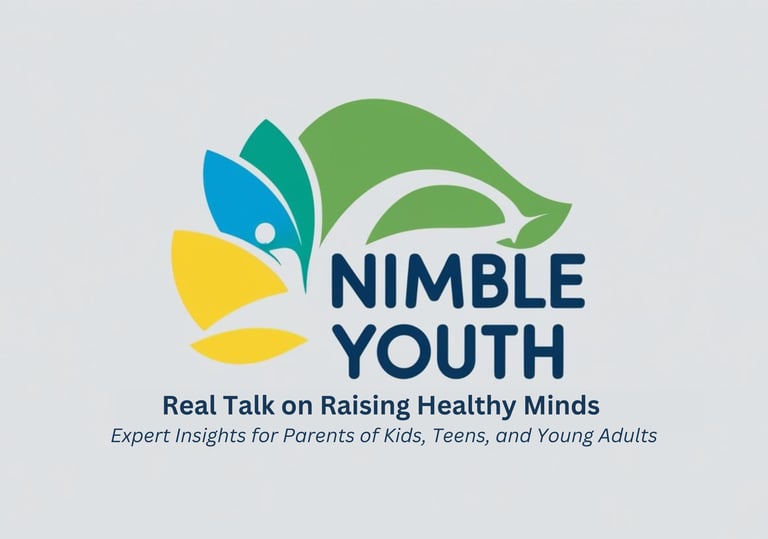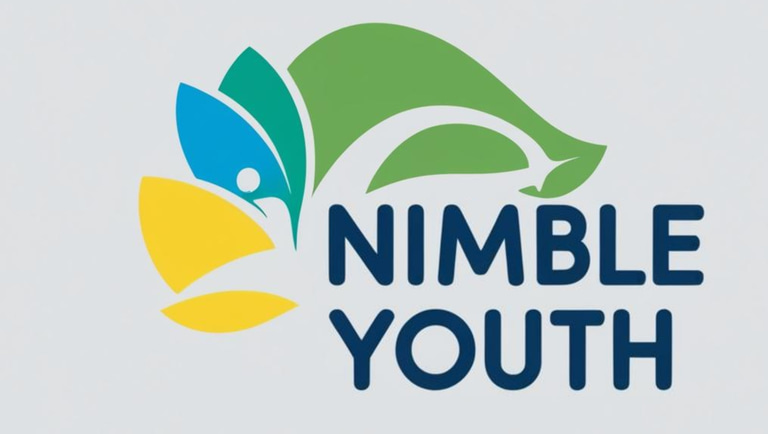Episode Eight: Collaborative Care – What Parents Need to Know
If you’ve ever felt like you’re the one doing all the care coordination for your child—between doctors, therapists, teachers, and insurance companies—you’re not alone. The mental health system hasn’t always made it easy. But there’s a new model that’s starting to change that: it’s called the Psychiatric Collaborative Care Model, or Collaborative Care for short.
M. Butterman
5/1/20252 min read


🎧 Episode Eight: How Collaborative Care Is Transforming Pediatric Mental Health
Guest: Dr. Gretchen Hoyle, Pediatrician
Description:
This episode of Nimble Youth dives into how the psychiatric collaborative care model is revolutionizing the way families, pediatricians, and mental health professionals support children. Host Matt Butterman is joined once again by pediatrician Dr. Gretchen Hoyle to discuss how this team-based model eases the burden on parents and leads to better outcomes for kids.
Together, they explore the structure and benefits of collaborative care—including how behavioral health care managers play a key role in bridging gaps between families, schools, and healthcare systems. You'll hear real-world strategies that help families manage ADHD, anxiety, and school challenges—and learn how this model moves care from fragmented to functional.
What You’ll Learn in This Episode:
What the collaborative care model looks like in pediatric settings
How behavioral health care managers support both emotional and logistical needs of families
Why this model can reduce conflict between parents and schools
Practical coaching tips for parents dealing with ADHD, anxiety, and homework battles
What “brief therapeutic interventions” are and how they help teens regain function
How to know if a practice near you offers collaborative care—and how to advocate for it
Real-World Impacts:
Educational advocacy: Behavioral health care managers help decode IEPs, work with school counselors, and reduce emotional tension in parent-school interactions.
Parent coaching: Concrete tips like creating clutter-free workspaces, using two-minute “clean-up games,” and setting simple evening goals help kids develop structure and boost dopamine.
Teen support: Skills-based coaching like breaking down tasks, journaling, mindfulness, and breathing exercises help teens with anxiety, depression, and motivation.
Restoring function: The focus isn’t just on diagnosis, but on getting kids back to school, friendships, and daily life—even as deeper therapeutic work unfolds over time.
Key Quotes:
“Sometimes a ten-minute phone call from the behavioral health care manager saves families from weeks of frustrating back-and-forth with the school.” – Dr. Hoyle
“They're not just support—they’re translators, advocates, and coaches.” – Matt Butterman
“We’re not replacing therapy—we’re reinforcing it with real-world skills, right when families need them.” – Dr. Hoyle
Resources & Links:
Interview with Dr. Hoyle at the NC Northwest Area Health Education Center
What Is Collaborative Care? (APA Overview)
CDC: Social Determinants of Health
Learn about PHQ-9 and GAD-7 screening tools
Parent Tip Spotlight:
Try the “3 things you’re proud of” exercise at bedtime—either asking your child what they’re proud of, or telling them what you are proud of in them. It's a powerful way to build connection, confidence, and emotional awareness.
How to Find Collaborative Care Near You:
Ask your pediatrician if their practice offers collaborative care or is planning to. Practices in the “contemplation stage” may adopt it sooner if they know families are interested.
Stay Connected:
Visit www.nimbleyouthpodcast.com to sign up for updates, read full transcripts, and explore past episodes.
Subscribe on Apple Podcasts, Spotify, or your favorite platform—and don’t forget to leave a review!
👂 You're not alone. Better support is possible.
© 2025. All rights reserved.


